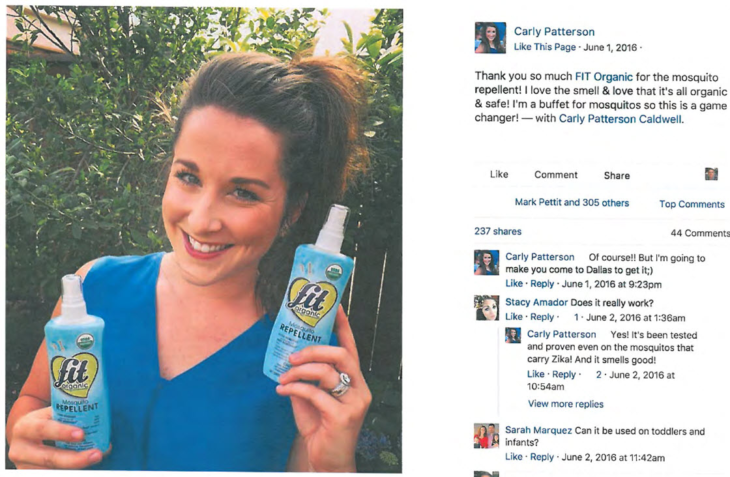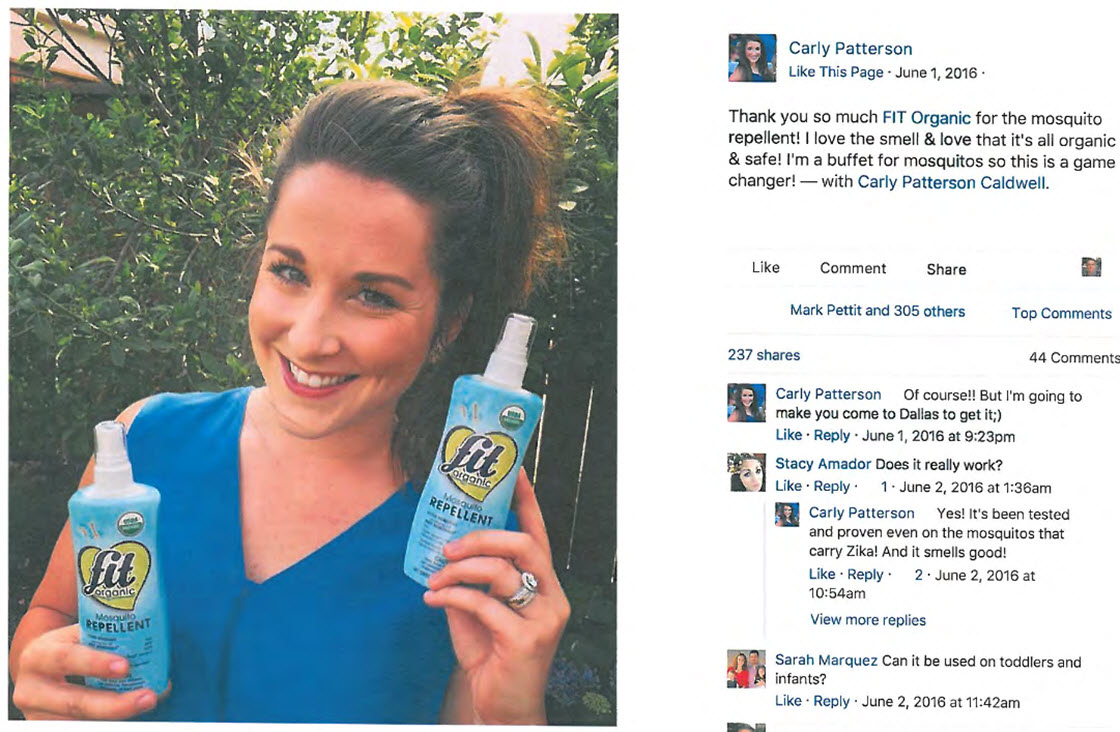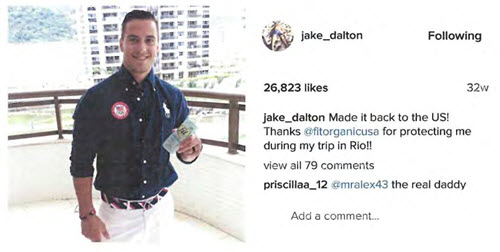
Key Takeaways from New FTC Disclosure Settlement

Just when it seemed like things were getting quiet with the FTC regarding disclosure and I was thinking that the new administration didn’t care so much about it, a new settlement was announced today regarding commercial endorsements. (If you want to see all of my research and updates on FTC disclosure, this post tracks them: Affiliates Take Note: New FTC Disclosure Guidelines)
The basic facts are that PR firm Creaxion Corporation paid two gold medal Olympians (Carly Patterson Caldwell and Jake Dalton) to promote a mosquito repellent on their social media during the 2016 Olympics (back during the Zika virus outbreak). They also partnered with Inside Gymnastics magazine to get endorsers and promote the product. The PR firm “drafted, reviewed and monitored” social media posts and advertorials made by the endorsers, and the magazine often reposted the endorsements on its own social media.
The allegations that apply to us most as influencers or affiliate marketers were that 1) the endorsements were not “independent experiences or opinions of impartial users” because they were part of an ad campaign, and 2) the endorsers “failed to disclose, or disclose adequately” that they were being paid for their endorsements.
Here is an example from the appendices that is particularly interesting to me:

It says “Made it back to the US! Thanks fitorganicusa for protecting me during my trip in Rio!!” The FTC is reiterating that “thanking” the company isn’t enough of a disclosure because it doesn’t indicate clearly that you are being paid. Recall that they did tell us this in a press release back in 2017 “Some of the letters addressed particular disclosures that are not sufficiently clear, pointing out that many consumers will not understand a disclosure like “#sp,” “Thanks [Brand],” or “#partner” in an Instagram post to mean that the post is sponsored.” I bet I see 100 “thank you” type “disclosures” a week on Instagram. Not sufficient!
Click here to see all of the examples used in the complaint.
Agency Responsibility
The results of the settlement were in line with what we have seen from the FTC thus far. It focused on the agency responsibilities.
- The agency has to provide the endorser with a clear statement of their disclosure responsibilities.
- The agency needs a system to monitor and review the disclosures.
- The agency must “immediately” terminate or cease payment if disclosure is not adequate. However, they can give an endorser time to remedy it they think it was inadvertent.
- The agency must keep reports of the monitoring.
We are seeing this same basic results in almost every disclosure/endorsement case.
Key Takeaways for Affiliate Marketers and Influencers
After diving into all of the documents, here are my key takeaways from the settlement:
- The FTC is still pursuing disclosure cases, but it can take years for them to come to an end (this is from 2016 and is just now at the settlement phase). Does that mean we will be seeing more and more as influencer marketing gets bigger?
- The influencers were not a party to this settlement but rather the PR Firm and the magazine. Did the influencers get out early or is the FTC still focused primarily on the brands? We did see them target the influencers with letters last year but no settlements yet.
- Agencies are clearly bearing most of the responsibility (and sometimes the brands) in failure to endorse cases.
- Instagram is a big target of the FTC.
- This is the second time that the FTC has told us that “thanking” a brand is not a sufficient disclosure.
- The FTC is establishing a very systematic approach to the education, monitoring, and tracking of endorsement relationships.
Although I don’t think that anything new came out of this settlement, I think that it gives the FTC more teeth to continue to go after others for actual money and not just cessation of activities in the future. The more that the FTC continues to lay this foundation, the better chance they have in future cases.